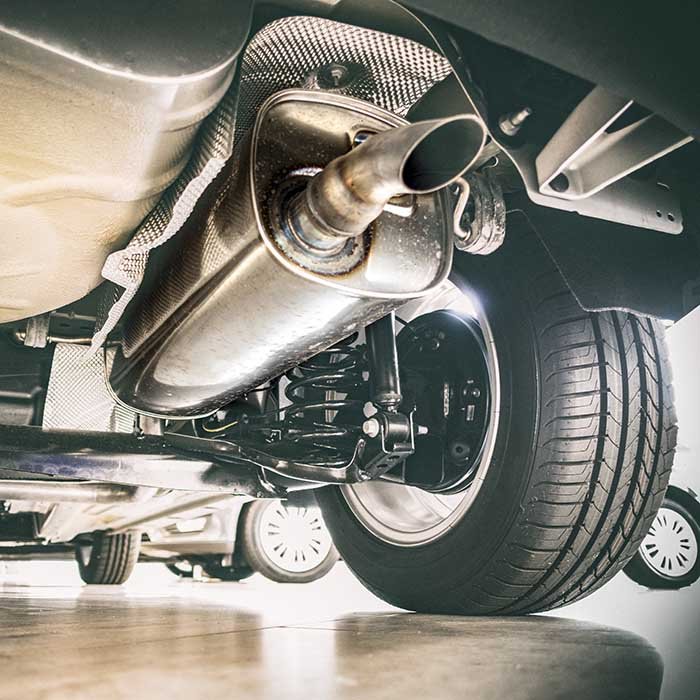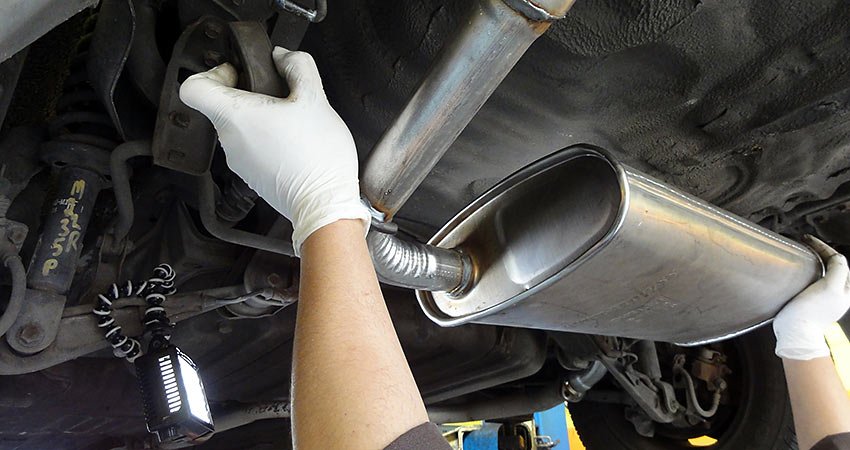Learn all about exhaust system repair. Discover common issues, how to diagnose problems, repair options, costs, and maintenance tips.
If your car’s exhaust system is giving you trouble, it’s important to fix it quickly. In this article, we talk about what an exhaust system is and why it’s important to repair it. You’ll learn to spot common problems like leaks or a noisy muffler. We’ll also discuss how to diagnose these issues and choose between professional repairs or DIY fixes. Plus, we’ll cover repair costs and tips to keep your exhaust system in good shape. Stay tuned to get all the details you need!
Understanding Exhaust System Repair
What is an Exhaust System?
An exhaust system is a crucial part of your vehicle, designed to direct exhaust gases away from the engine and reduce harmful emissions. It includes several components such as the muffler, catalytic converter, exhaust pipes, and tailpipe. The system helps in managing engine noise and ensuring that gases are safely expelled from the vehicle.

Why Exhaust System Repair is Important
Repairing your exhaust system is vital for maintaining vehicle performance and ensuring environmental compliance. A properly functioning exhaust system contributes to:
- Vehicle Performance: An intact exhaust system enhances engine efficiency and power.
- Environmental Safety: It reduces harmful emissions, helping you meet emission standards.
- Noise Reduction: A well-maintained system minimizes engine noise, making your drive more pleasant.
Common Issues with Exhaust Systems
Signs of Exhaust System Problems
Recognizing exhaust system issues early can save you from costly repairs. Watch for these signs:
- Unusual Noises: Loud or unusual noises often indicate a problem with the muffler or pipes.
- Decreased Fuel Efficiency: A failing exhaust system can lead to poor fuel economy.
- Emission Test Failures: If your vehicle fails an emissions test, it may be due to issues with the catalytic converter or other components.
Typical Exhaust System Failures
Common failures in the exhaust system include:
- Exhaust Leaks: Leaks can occur in the pipes or joints, causing noise and reducing efficiency.
- Muffler Damage: The muffler can rust or become damaged, affecting noise reduction.
- Catalytic Converter Issues: This component can clog or fail, impacting emission control and engine performance.

Diagnosing Exhaust System Issues
How to Identify an Exhaust Leak
Detecting an exhaust leak involves:
- Visual Inspection: Look for rust, holes, or loose connections in the exhaust system.
- Listening for Sounds: A hissing or rumbling noise might indicate a leak.
Testing Muffler and Catalytic Converter
To assess the muffler and catalytic converter:
- Symptoms of Muffler Wear: Check for increased noise or vibrations.
- Signs of a Failing Catalytic Converter: Poor acceleration or unusual smells can indicate a problem.
Exhaust System Repair Options
Professional Repair Services
When opting for professional repair services:
- What to Expect from a Repair Shop: A reliable repair shop will inspect the system, identify issues, and provide a detailed quote.
- Finding a Reliable Mechanic: Look for certified mechanics with good reviews to ensure quality service.
DIY Repair Techniques
For those interested in DIY repairs:
- Common Tools and Materials: You’ll need basic tools like wrenches, jack stands, and exhaust sealant.
- Step-by-Step Guide for Simple Repairs: Follow a detailed guide to fix minor issues like exhaust leaks or muffler replacement.
Costs and Considerations for Exhaust System Repair
Typical Costs for Repair Services
Repair costs can vary based on:
- Factors Affecting Cost: Type of repair, vehicle model, and labor rates.
- Average Prices for Common Repairs: Expect to pay between $100 and $1,200 depending on the issue.
Cost of DIY Repairs vs. Professional Help
DIY repairs can be cheaper but require time and skill. On the other hand, professional help ensures accuracy but at a higher cost. Weigh the pros and cons based on your situation.

Maintenance Tips for Prolonging Exhaust System Life
Regular Maintenance Practices
To extend the life of your exhaust system:
- Importance of Routine Checks: Regular inspections help catch issues early.
- Preventive Measures: Regularly clean and check for rust or damage.
When to Schedule Professional Inspections
Schedule professional inspections if:
- Recommended Maintenance Intervals: Typically every 30,000 miles.
- Signs That Indicate Professional Help is Needed: Persistent noises or performance issues.
Upgrading Your Exhaust System
Benefits of Upgrading
Upgrading your exhaust system can offer:
- Performance Improvements: Enhanced power and efficiency.
- Enhanced Vehicle Efficiency: Better fuel economy and reduced emissions.
Choosing the Right Upgrades
When selecting upgrades:
- Types of Upgrades Available: Consider options like high-performance mufflers or catalytic converters.
- Considerations for Selecting Upgrades: Match upgrades with your vehicle’s needs and goals.
To keep your vehicle running smoothly, it’s essential to address exhaust system issues promptly. Regular maintenance and timely repairs can save you from bigger problems down the road. Feel free to leave a comment, share this article, or explore more content on our site for additional tips and advice. Your feedback and engagement help us provide valuable information.
FAQs about Exhaust System Repair
How do I know if my exhaust system needs repair?
Your exhaust system may need repair if you notice certain signs. Common indicators include loud or unusual noises, such as a rumbling or hissing sound, which could signal a problem with the muffler or pipes. Additionally, a decrease in fuel efficiency or failed emissions tests may point to issues with the catalytic converter or other components. Pay attention to these symptoms to avoid more significant problems.
Can I drive with a broken exhaust system?
Driving with a broken exhaust system is not recommended. It can lead to increased engine noise, reduced performance, and potential health hazards due to exposure to harmful exhaust gases. Moreover, a damaged system can fail emissions tests, resulting in fines or legal issues. It’s best to address the problem as soon as possible to ensure safety and compliance.

How much does exhaust system repair typically cost?
The cost of exhaust system repair can vary based on the specific issue and your vehicle’s make and model. On average, you can expect to pay between $100 and $1,200. Simple repairs, like fixing a leak, are generally less expensive, while replacing components like the catalytic converter or muffler can be more costly. Always get a detailed quote from your repair shop for an accurate estimate.
Can I repair my exhaust system myself?
DIY exhaust system repairs are possible for minor issues, such as fixing small leaks or replacing a muffler. However, it requires some mechanical knowledge and tools. For more complex problems or if you’re unsure, it’s advisable to seek help from a professional mechanic. Improper repairs can lead to further damage and may not meet safety and emission standards.
How often should I have my exhaust system inspected?
It’s recommended to have your exhaust system inspected every 30,000 miles or during routine vehicle maintenance. However, if you notice symptoms like unusual noises or poor performance, you should have it checked sooner. Regular inspections can help catch issues early and ensure your system operates efficiently.